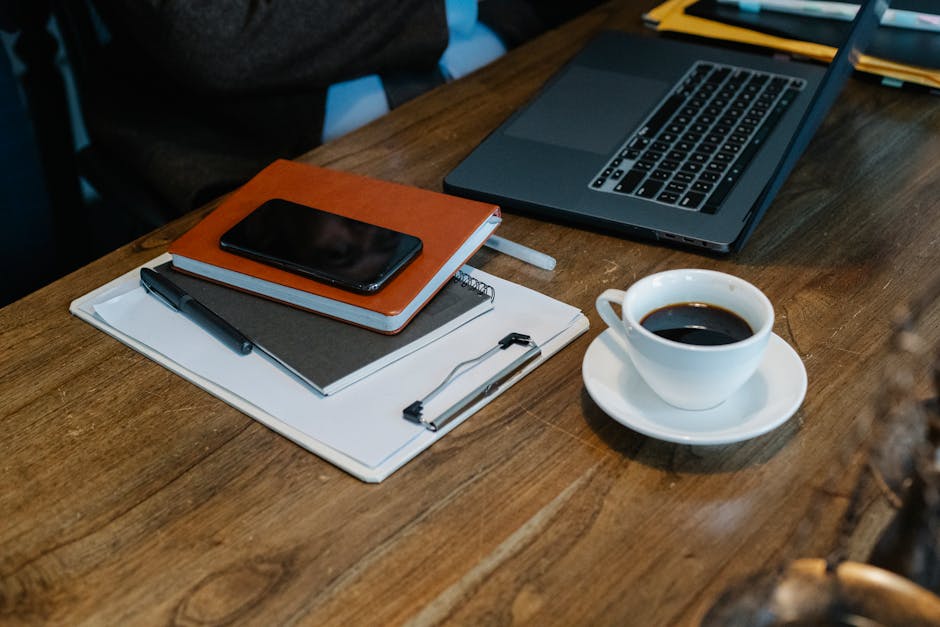The Evolution of Workplace Phone Policies: Balancing Productivity and Connectivity
"This article examines the evolution of workplace phone policies, from strict bans to strategic integration. We discuss how businesses are harnessing the power of smartphones to improve workplace efficiency, security, and employee satisfaction in the modern era. "

The Evolution of Workplace Phone Policies: Balancing Productivity and Connectivity
In today's digital age, the role of smartphones in the workplace has undergone a dramatic transformation. What was once seen as a potential distraction is now being recognized as a powerful tool for enhancing productivity and improving the overall employee experience. Let's explore how workplace phone policies have evolved and how forward-thinking organizations are leveraging mobile technology to create more efficient and connected work environments.

The Changing Landscape of Workplace Phone Policies
From Restriction to Integration
Historically, many companies adopted strict policies prohibiting or severely limiting personal phone use during work hours. The rationale was simple: phones were viewed as distractions that could hamper productivity. However, as smartphones became ubiquitous and their capabilities expanded, businesses began to recognize the potential benefits of integrating these devices into the workplace.
The Rise of BYOD (Bring Your Own Device)
The concept of BYOD has gained significant traction in recent years. This approach allows employees to use their personal devices for work-related tasks, offering several advantages:
- Cost savings for employers
- Increased employee satisfaction and flexibility
- Enhanced productivity through familiarity with personal devices
However, BYOD also presents challenges, particularly in terms of security and data management. Organizations must implement robust policies and security measures to protect sensitive information.
Leveraging Smartphones for Workplace Efficiency
Modern businesses are finding innovative ways to harness the power of smartphones to streamline operations and enhance the employee experience.
Mobile Access Control
One of the most significant advancements is the use of smartphones for building access. Instead of traditional keycards or badges, employees can now use their phones to unlock doors and enter secure areas. This not only reduces the risk of lost or stolen access cards but also provides a more convenient experience for employees.
Desk and Room Booking
Desk rotation and flexible seating arrangements have become increasingly popular, especially in hybrid work environments. Mobile apps allow employees to easily book desks or meeting rooms on the go, ensuring they always have a suitable workspace when they come to the office.

Team Communication and Collaboration
Smartphones enable seamless communication through various channels, including instant messaging, video calls, and project management apps. This connectivity is particularly valuable for remote and hybrid teams, fostering collaboration regardless of physical location.
Health and Safety Compliance
In the wake of the COVID-19 pandemic, many organizations have implemented health screening protocols. Mobile apps can facilitate quick and easy health checks, allowing employees to verify their status before entering the workplace.
Crafting an Effective Workplace Phone Policy
While the benefits of integrating smartphones into the workplace are clear, it's crucial to establish guidelines that balance productivity, security, and employee well-being. Here are some key considerations:
- Clear Usage Guidelines: Define acceptable use of personal devices during work hours.
- Security Protocols: Implement robust security measures to protect company data on personal devices.
- Training and Education: Provide employees with training on best practices for using mobile devices in the workplace.
- Work-Life Balance: Encourage employees to disconnect outside of work hours to prevent burnout.
- Regular Policy Reviews: Continuously assess and update your phone policy to adapt to changing technologies and work practices.

The Future of Workplace Phone Integration
As technology continues to evolve, we can expect to see even more innovative uses of smartphones in the workplace. From augmented reality applications for training and maintenance to advanced biometric security features, the possibilities are endless.
Leveraging space management tools and mobile technologies can significantly enhance workplace efficiency and employee satisfaction. By embracing these advancements and crafting thoughtful policies, organizations can create a more connected, productive, and engaging work environment.
In conclusion, the evolution of workplace phone policies reflects a broader shift in how we view technology in the professional sphere. By recognizing smartphones as valuable tools rather than mere distractions, businesses can unlock new levels of productivity, flexibility, and employee satisfaction. The key lies in striking the right balance between leveraging the benefits of mobile technology and maintaining a focused, secure work environment.
Want to learn more about Workplace Experience?
Explore our complete guide with more articles like this one.


